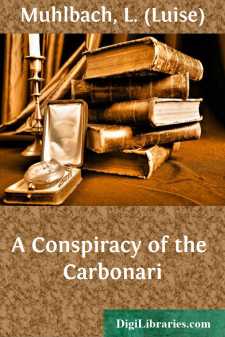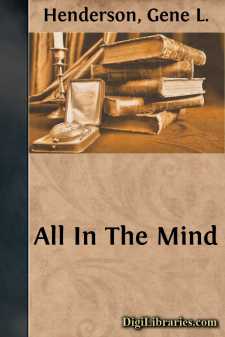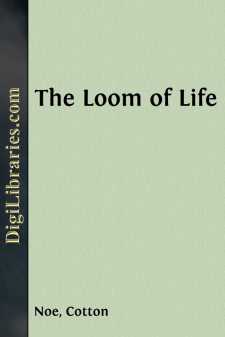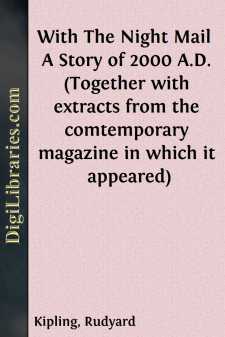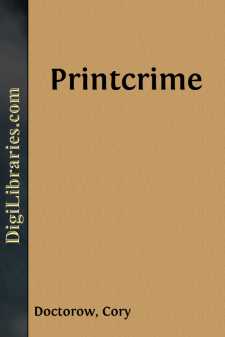Fiction
- Action & Adventure 180
- Biographical 15
- Christian 59
- Classics 6965
- Coming of Age 5
- Contemporary Women 3
- Erotica 8
- Espionage/Intrigue 12
- Fairy Tales, Folklore & Mythology 236
- Family Life 169
- Fantasy 117
- Gay 1
- General 596
- Ghost 32
- Historical 808
- Horror 43
- Humorous 160
- Jewish 25
- Legal 4
- Medical 22
- Mystery & Detective 315
- Political 49
- Psychological 41
- Religious 64
- Romance 159
- Sagas 11
- Science Fiction 730
- Sea Stories 113
- Short Stories (single author) 537
- Sports 10
- Suspense 1
- Technological 8
- Thrillers 2
- Urban Life 31
- Visionary & Metaphysical 1
- War & Military 173
- Westerns 199
Fiction Books
Sort by:
CHAPTER I. THE ENCHANTER AND THE WARRIOR. It was the summer of the year 1491, and the armies of Ferdinand and Isabel invested the city of Granada. The night was not far advanced; and the moon, which broke through the transparent air of Andalusia, shone calmly over the immense and murmuring encampment of the Spanish foe, and touched with a hazy light the snow-capped summits of the Sierra Nevada,...
more...
I HOW I FOUND MY TITLE It is surely a rare experience for an unclassified man, past middle age, to hear himself accurately and aptly described for the first time in his life by a perfect stranger! This thing happened to me at Bristol, some time ago, in the way I am about to relate. I slept at a Commercial Hotel, and early next morning was joined in the big empty coffee-room, smelling of stale tobacco,...
more...
CHAPTER I. AFTER ESSLINGEN. It was the evening of the 22d of May, 1809, the fatal day inscribed in blood-stained letters upon the pages of history, the day which brought to Napoleon the first dimming of his star of good fortune, to Germany, and especially to Austria, the first ray of dawn after the long and gloomy night. After so many victories and triumphs; after the battles of Tilsit, Austerlitz, and...
more...
Mel felt as if he were floating on clouds in the deepest, most intense dark he had ever experienced. He tried opening his eyes but nothing happened, only a sharp pain. Little bits of memory flashed back and he tried to figure out what could have happened, where he was. The last thing he could remember was the little lab hidden back in the mountains in an old mine tunnel. Remote, but only an hour's...
more...
by:
Jack London
CHAPTER I The one opened the door with a latch-key and went in, followed by a young fellow who awkwardly removed his cap. He wore rough clothes that smacked of the sea, and he was manifestly out of place in the spacious hall in which he found himself. He did not know what to do with his cap, and was stuffing it into his coat pocket when the other took it from him. The act was done quietly and...
more...
by:
Cotton Noe
THE OLD-FASHIONED LOOMThe old log house where Margaret lived, whose roof had mossy grown,Reposed amid its clump of trees, a queen upon her throne.The landscape round smiled proudly and the flowers shed sweet perfume,When Margaret plied the shuttle of the rude old-fashioned loom.The world has grown fastidious—demands things ever new—But we could once see beauties in the rainbow's every hue;The...
more...
THE SHEPHERD AND THE BIBLEDan'l Burdon, the treasure-seeker—The shepherd's feeling for the Bible—Effect of the pastoral life—The shepherd's story of Isaac's boyhood—The village on the WylyeOne of the shepherd's early memories was of Dan'l Burdon, a labourer on the farm where Isaac Bawcombe was head-shepherd. He retained a vivid recollection of this person, who had...
more...
by:
Rudyard Kipling
With the Night Mail At nine o'clock of a gusty winter night I stood on the lower stages of one of the G. P. O. outward mail towers. My purpose was a run to Quebec in "Postal Packet 162 or such other as may be appointed"; and the Postmaster-General himself countersigned the order. This talisman opened all doors, even those in the despatching-caisson at the foot of the tower, where they...
more...
1 The events I am about to relate took place more than fifty years ago. I am a white-haired old woman now, and I was then a little girl scarce ten years of age; but those times, and the places and people associated with them, seem, in truth, to lie nearer my memory than the times and people of to-day. Trivial incidents which, if they had happened yesterday, would be forgotten, come back upon me...
more...
by:
Cory Doctorow
The coppers smashed my father's printer when I was eight. I remember the hot, cling-film-in-a-microwave smell of it, and Da's look of ferocious concentration as he filled it with fresh goop, and the warm, fresh-baked feel of the objects that came out of it. The coppers came through the door with truncheons swinging, one of them reciting the terms of the warrant through a bullhorn. One of...
more...




